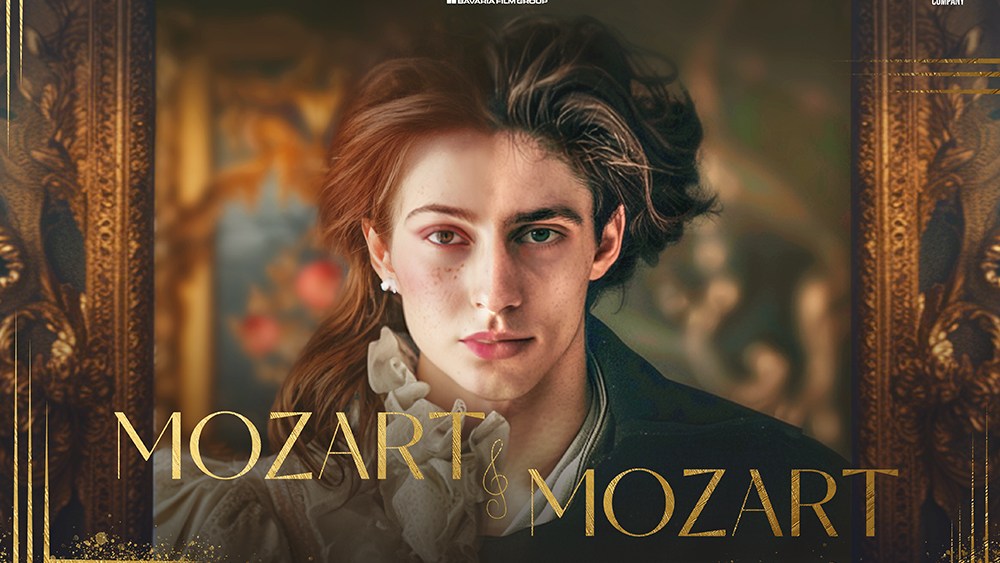‘Mozart/Mozart’ Boarded By ARD, ORF & Clara Zoë My-Linh von Arnim
Signalling one of the biggest European packages to hit Monday’s Mipcom, “Mozart/Mozart,” the latest big series swing from Germany’s Story House Pictures, behind Beta Film/RTL mega-hit “Sisi,” has been boarded by Germany’s ARD and its Austrian public broadcaster counterpart ORF.
In further news, Clara Zoë My-Linh von Arnim, co-director of “The Zweiflers,” this year’s Canneseries best series and German TV Awards winner, is set to helm the series.
Based on one of Europe’s largest IPs and now backed by ARD, the biggest of Europe’s public broadcasters, “Mozart/Mozart” is created by Andreas Gutzeit – co-founder of Story House Pictures, the international studio of the Bavaria Film Group, and producer and showrunner on “Sisi” – and Swantje Oppermann, a staff writer on “Dignity” and a Story House development executive.
Bavaria Media International will bring the six-part show to market at Mipcom.
“Mozart/Mozart” is part inspired by historical fact. Maria Anna Mozart was hailed as a child prodigy. When performing with little brother Wolfgang Amadeus, she got top billing. Even when forced to stop performing in public when she attained a marriageable age, she continued to compose, but her music was lost and never performed in public.
“Far too often, women have been written out of history, ‘Mozart/Mozart’ writes Maria Anna Mozart back in,” the creators said. They do so in a full-throttle plot that kicks off when, already a rockstar, after a particularly show-stopping performance, Mozart is sacked as composer of the Salzburg court.
The Mozarts face financial ruin unless Maria Anna marries a man 20 years her senior. Instead, the two flee to Vienna to vie for a gig as a conductor at the Emperor Joseph II’s court. But then Amadeus injures his hand, and succumbs to a near madness. To save the family’s finances, Maria Anna steps up and with Amadeus’ help, pretends to be him – under those colorful wigs and crazy costumes, nobody can tell the difference.
Maria Anna conducts to wild acclaim, and finds fulfillment and freedom as “Mozart,” while Amadeus crashes and burns, confined to a clinic. To complicate matters, Maria Anna also falls in love with Antonio Salieri, Mozart’s rival.

Andreas Gutzeit, Swantje Oppermann, Clara Zoë My-Linh von Arnim
Credits: Ingo Böhm/René Fitzek
“Mozart/Mozart” will go into production in 2025, also releasing next year.
“Mozart is a global brand that has been successful for over 250 years. ‘Mozart/ Mozart’ continues this success, by telling a wild drama about an extraordinary musician who was pushed out of the limelight when she was a girl and who reclaims her spot in a most extraordinary way as a woman,” said Gutzeit.
The series is set at Vienna in the 1780s, ruled by an Emperor who was an extraordinary patron of the arts. The city was the entertainment capital of Europe which truly comes to life at night, be it at the exclusive after shows for Vienna’s VIPs or at excessive parties, where whole livelihoods are gambled away, opium is the coke of its time, and sex is a commodity that is traded freely.
A promo reel suggests “Mozart/Mozart” will be big, extravagant, flamboyant and wild.
“The goal is to recreate the emotions that people might have felt when they listened to Mozart’s music at that time, to let the audience experience what was so special, touching and so new about this music and to create a special visual style, which requires boldness and some punkiness,” My-Linh von Arnim told Variety.
“On the music level it will bring something really new and edgy to the screen, but it will still be very popular and accessible to modern audiences.” she added.
“The visual concept is very modern and sometimes poppy but that will never work against the characters and their emotions. It just elevates them, brings them and the drama out.”
The costumes and locations of the series will, thus, be as show stopping and eye-popping as its characters. “In her brother‘s showy outfits, Maria Anna will bring the house down,” Gutzeit promised.
“Mozart/Mozart” will also have a very pronounced upstairs/downstairs element to it and will represent Vienna’s street musicians as prominently as the virtuosos at court, said My-Linh von Arnim. “This difference is front and center to the series,” she observed.
The series issues are eminently relevant today, they both insisted.
“At its heart, this is a modern female empowerment story, but much more than just a woman finding her place. Maria Anna has to believe in herself, believe in her talent, only then does she come into her own. This is very relatable to a young audience,” said Gutzeit.
As Maria Anna, disguised, becomes the star of Vienna, Amadeus returns, his mental health and addiction worsening as he fears he’s being replaced by his sister.
The series is also about “how to be successful and respected as a woman back in these times while also finding your place in a relationship which is actually a timeless conflict, My-Linh von Arnim noted.
The Mozarts will discover, however, together they’re far better than working apart.
Theirs’ is not the only sibling relationship in the series, however.
From 1780, Joseph II, regarded as one of Europe’s finest monarchs, put into practice the ideas of the Enlightenment, such as peasant’s owning small landholdings, which made him more progressive than many European governments today.
Via his sister Marie Antoinette, married to the French king, he engaged in a philosophical battle between the Austrian and French monarchies as to how Europe is ruled. Hard partying Marie Antoinette’s privileged existence in Austria is indeed threatened by her brother’s political agenda. She torpedoes her brother’s reforms.
Made for mass audiences, but especially younger viewers, “Mozart/Mozart” is about “family, and sibling love, and about talent and destiny, transgression and oppression, power and abuse, hate and love, and of course music… lots of music,” said Gutzeit.


